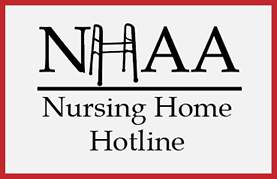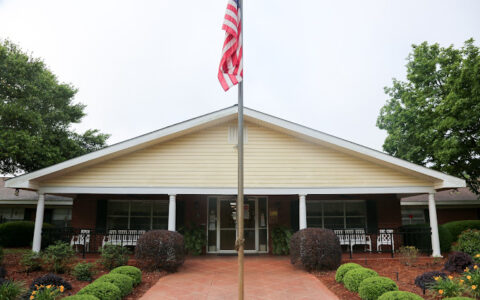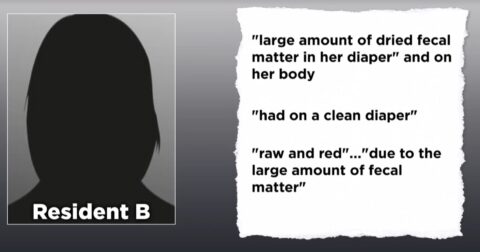In The News:
Based on observation, record review, resident and staff interviews, and review of facility policy/procedure titled Clinical Resource Tool; Topical Treatment of Wounds, the facility failed to ensure 1 (Resident #17) of 3 residents with pressure ulcers received treatment and services to promote healing. Actual harm was identified when a deep tissue injury (DTI, which is a purple or maroon localized area of discolored skin due to damage of the underlying soft tissue from pressure and/or shear) was identified on 3/10/2023 to the right ischium (buttock) of Resident #17 and the facility failed to assess/monitor the wound and provide necessary treatment to prevent the wound from worsening. This failure resulted in the DTI to Resident #17’s right ischium worsening to an open area that was 2.5 centimeters (cm) deep, with 3 cm of undermining (erosion of tissue creating a pocket underneath the intact skin), a moderate amount of pink-yellow drainage, and a mild odor.
A review of the Care Plan for Resident #17, dated 03/10/2023, revealed the resident had a recent right above the knee amputation. The Care Plan dated 02/02/2023, revealed Resident #17 was at risk for skin breakdown related to incontinence. Interventions directed staff to apply protective or barrier lotion after incontinence, assist to turn/reposition frequently, inspect the skin during care/bathing and report any changes to the nurse supervisor, provide a pressure redistribution device to the bed, and a pressure redistribution device to the chair.
A review of a Nurses Note, dated 03/10/2023, revealed Resident #17 was readmitted to the facility at 2:16 PM with a dressing to the right above the knee amputation. According to the note, all other skin areas were intact, and the skin was warm and dry.
Review of the Weekly Wound record, dated 03/01/2023 through 04/26/2023, revealed on 03/14/2023, the Wound Treatment Nurse documented Resident #17 had a DTI to the right ischium (buttock) that measured 4 cm long by (x) 3 cm wide x 0.1 cm deep. The surrounding skin was intact and there was no drainage. According to the wound record, the area was being treated with honey gel. However, a review of Resident #17’s physician orders and the eTAR [electronic treatment administration record] revealed a treatment was not ordered to the DTI until 03/23/2023, when the resident’s physician gave a verbal order to the Wound Treatment Nurse to clean the right ischium with normal saline, pat the area dry, apply honey gel, and cover with a foam dressing every two days.
On 04/26/2023 at 2:50 PM, the Wound Treatment Nurse was interviewed. She stated she had only worked as the treatment nurse four days in the last two weeks due to covering overnight shifts for the facility. She stated she was the only staff person assigned to assess wounds weekly and due to working the floor she did not have time to make sure all wounds were measured.
A follow-up interview with the Wound Treatment Nurse was conducted on 04/27/2023 at 8:16 AM. She stated when she provided a dressing change to Resident #17’s right above the knee amputation on 03/14/2023, she noticed a purple-colored area on the resident’s right ischium and measured it as a precaution. Since the area was not draining/had no exudate, she was going to monitor the area and the order for honey gel was entered as pending. She stated the intent was not to do the treatment order for 03/14/2023. The Wound Treatment Nurse indicated that when she saw the DTI again on the 03/23/2023, the wound was bigger and had a mild amount of tan colored drainage. Subsequently, she ordered the honey gel treatment. According to the Wound Treatment Nurse, she assessed Resident #17’s wound for the weeks of 04/13/2023 and 04/18/2023 during her shifts as a floor nurse and handwrote the measurements on a notepad. She indicated
she did not have enough time to input the information into the Weekly Wound report. On 04/26/2023, she stated she had measured Resident #17’s wound during the overnight shift when she was working as a floor nurse. Further, she stated Resident #17’s wound changed from a DTI to stageable pressure ulcer when slough was present in the wound bed. However, the Wound Treatment Nurse indicated she did not change the description of the DTI to a stageable pressure ulcer (upstage). She stated if the wound’s measurements were worse, the treatment should be changed, and she notified the nurse practitioner. Further interview with the Wound Treatment Nurse revealed she was not sure if the Nurse Practitioner (NP) saw Resident #17’s right ischium wound, but stated she did verbally notify her of the area.
During a follow-up interview with the DON on 04/27/2023 at 11:38 AM, she revealed the Wound Treatment Nurse should have documented the upstage (stage 3) of Resident #17’s right ischium wound. During this interview, the DON stated the current treatment of honey gel was sufficient for the stage 3 wound. Further interview with the DON revealed if a treatment was documented on the weekly wound report, the treatment should have been ordered and provided. According to the DON, the staff member assigned to provide the resident’s treatment should have measured all wounds weekly and documented findings in the Weekly Wound report. The DON indicated that no staff reviewed the Weekly Wound report after the Wound Treatment Nurse entered her assessments. She stated if the Wound Treatment Nurse did not follow the Topical Treatment of Wounds protocol, she should have brought it to the attention of the clinical team or wound consultant, and then notified the physician of the change of wound treatment.
Your Experience Matters
...and we want to hear it.
NHAA is here to assist families, residents, and the community by sounding the alarm on issues like those found above. This nursing home and many others across the country are cited for abuse and neglect.
If you have or had a loved one living in this nursing home or any other nursing home where you suspect any form of abuse or neglect, contact us immediately.
We have helped many already and we can help you and your loved one as well by filing a state complaint, hiring a specialized nursing home attorney or helping you find a more suitable location for your loved one.
You can make a difference, even if your loved one has already passed away.
Please give us a call at 1-800-645-5262 or fill out our form detailing your experience.
Personal Note from NHA-Advocates
NHAA shares with all the families of loved ones who are confined to nursing homes the pain and anguish of putting them in the care of someone else. We expect our loved ones to be treated with dignity and honor in the homes we place them. We cannot emphasize enough to family members of nursing home residents; frequent visits are essential to our loved ones’ well-being and safety.
If you are struggling and upset, click here to understand your options, or contact us through our contact form or call our toll free hot line number: 1-800-645-5262.







